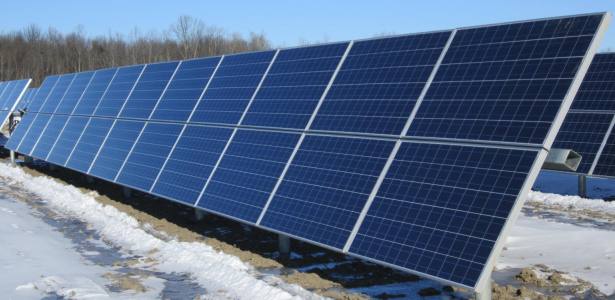Delhi Power Minister Satyendra Jain on Thursday released a Delhi Solar Energy Policy 2015 draft aimed at generating 1,000 MW solar power in the next five years.
“To promote solar energy, solar panels will be installed on the roof-tops of every government buildings and we’ll start with Delhi Secretariat,” Jain said at an event at the secretariat here.
Delhi Dialogue Commission vice chairman Ashish Khetan was also present at the release.
The minister said a tender for 5MW solar power generation had been floated. “We have a target to generate 1,000 MW solar power in next five years and 2,000 MW by 2025,” he said.
“This solar policy will promote rapid growth of solar power, especially roof-top via a combination of generation targets, regulations, mandate and incentives. This will also promote net-metering and grid connectivity for all solar plants,” he added.
The DDC has recommended a non-capital subsidy model for implementation of the targets outlined in the policy. It has strongly advocated performance-based incentives for domestic households coming forward for installation of solar panels.
The draft policy outlines a combination of regulations, mandates, incentives, and tax breaks for the growth of roof-top solar power in the capital.
“Delhi government’s financial assistance for solar energy will not take the form of capital subsidies but low-cost financing options for all consumers,” added Jain.
The draft policy promotes net metering for all solar plants above 1 kW based on the net metering regulations issued by the Delhi Electricity Regulatory Commission in 2014.
The policy mandates the deployment of solar plants on all government-owned roof-tops in the next five years and requires DISCOMS to meet at least 75 percent of their solar renewable purchase obligation within Delhi.
It also provides a generation-based incentive of Rs.2 per solar energy unit in the domestic segment for three years. In addition, it calls for the exemption of electricity tax on solar energy, and waives VAT on all solar plant components, including solar panels and solar inverters, for five years.
“Solar energy is being embraced across the world and for good reasons,” said Khetan.
“It’s not only sustainable but has also become financially lucrative for all consumers in the non-domestic tariff segments in Delhi, and for many consumers in the domestic segment,” he said.
The task of drafting Delhi’s solar energy policy was led by an IIT Kharagpur alumni Namit Arora and Rajneesh Shrivastava of the EE&REM Centre – the state nodal agency responsible for the effective implementation of the policy.
IANS

